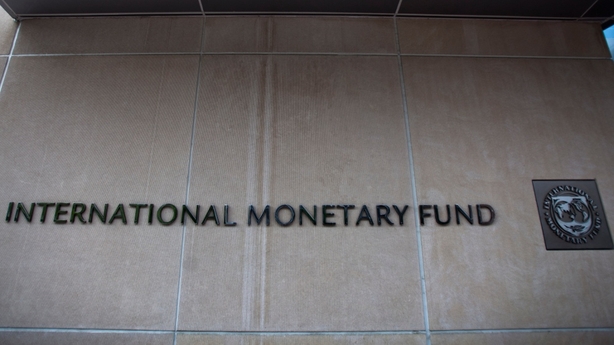The International Monetary Fund has warned of potentially "severe" economic damage from a British exit from the European Union.
It also voiced strong worries over generally deteriorating support for EU integration.
"Across Europe, the political consensus that once propelled the European project is fraying," said IMF chief economist Maurice Obstfeld.
He added that a broader backlash against economic integration "threatens to halt or even reverse the postwar trend of ever more open trade".
Mr Obstfeld also said the possibility that Britain votes to leave the EU was "very real".
He said Europe's refugee crisis, combined with attacks by Islamic militants, had resulted in a "rising tide of inward-looking nationalism" in the region.
"One manifestation of increased nationalism is the very real possibility that the United Kingdom exits the European Union, damaging a wide range of trade and financial relationships," he said.
Warning of 'regional and global damage'
In a half-yearly assessment of the world economy, the IMF listed the 23 June in-out referendum as a key risk alongside instability in China and other emerging markets, volatile share prices and a loss of long-term growth potential in advanced economies.
"The planned June referendum ... has already created uncertainty for investors," Mr Obstfeld said. "A Brexit could do severe regional and global damage by disrupting established trading relationships."
The IMF also cut its 2016 growth forecast for Britain to 1.9% from 2.2%, the sharpest downgrade for any major advanced economy other than Japan.
Britain's economy expanded by 2.3% in 2015 and government forecasters have said growth will slow this year and in subsequent ones.
In February, the world's top 20 economies listed Brexit as a global risk after lobbying from British finance minister George Osborne.
Mr Osborne said the IMF's comments reinforced the case for staying.
"The IMF has given us the clearest independent warning of the taste of bad things to come if we leave the EU," he said.
IMF unduly negative, Brexit supporters say

Supporters of Britain leaving said the IMF was being unduly negative and that the biggest risk was remaining in the EU.
"The IMF has talked down the British economy in the past and now it is doing it again at the request of our own (finance minister)," said Matthew Elliott, chief executive of campaigning group Vote Leave.
The IMF said Britain's trade with the EU was likely to suffer if it left, especially during the two years after the referendum when it would negotiate exit terms, "resulting in an extended period of heightened uncertainty".
Yesterday, the City of London said leaving would be a shock to Britain's financial industry, threatening foreign investment and crimping growth.
Prime Minister David Cameron promised to hold the referendum to satisfy the many members of his Conservative Party who want Britain to leave the bloc.
Most opinion polls suggest supporters of EU membership have a narrow lead.
Listing the prospect of UK withdrawal as one of the seven main "downside risks" to the world economy, the report warned: "A British exit from the European Union could pose major challenges for both the United Kingdom and the rest of Europe.
"Negotiations on post-exit arrangements would likely be protracted, resulting in an extended period of heightened uncertainty that could weigh heavily on confidence and investment, all the while increasing financial market volatility.
"A UK exit from Europe's single market would also likely disrupt and reduce mutual trade and financial flows, curtailing key benefits from economic co-operation and integration, such as those resulting from economies of scale and efficient specialisation."

